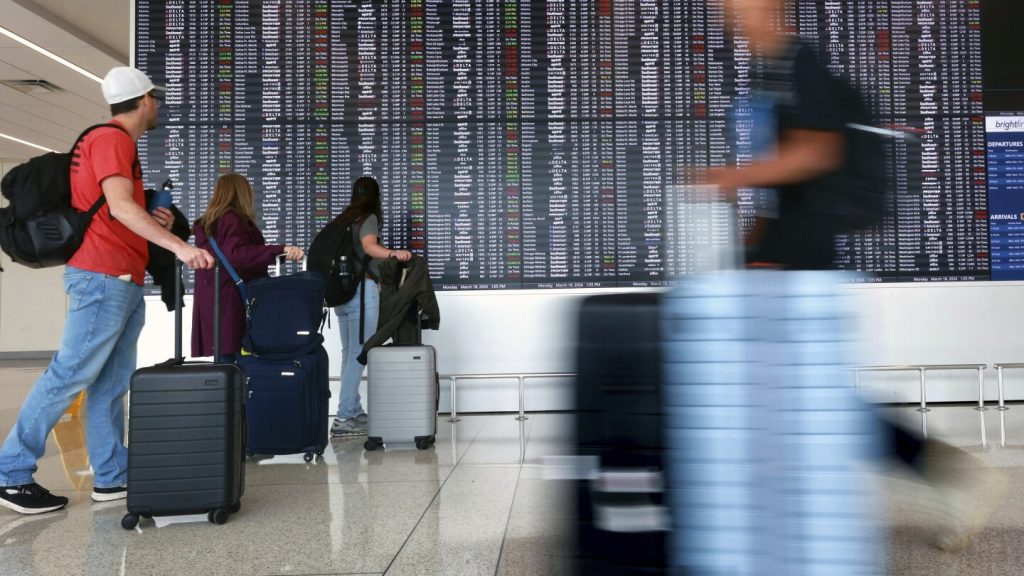The U.S. airlines, including American, Delta, and United, are suing the Biden administration to block a new rule that would require greater transparency over fees charged to passengers. The airlines argue that the rule would confuse consumers by providing them with too much information during the ticket-buying process. The Transportation Department announced the rule on April 24, which would compel airlines and travel agents to disclose charges for baggage, canceling, or changing reservations upfront.
The Transportation Department estimated that the new rule would save consumers more than $500 million a year. The agency emphasized that the rule is aimed at protecting travelers from hidden fees and ensuring that they can see the full price of a flight before purchasing a ticket. However, the airlines, along with their industry trade group, claim that the administration is overstepping its authority by attempting to regulate private business operations in a competitive marketplace. They argue that consumers already have access to information about fees and the new rule would only complicate the buying process.
The trade group, Airlines for America, stated that airlines already make efforts to educate their customers about various fees, and the ancillary fee rule by the Department of Transportation would confuse consumers by inundating them with unnecessary information. The airlines, including industry leaders like American, Delta, and United, contend that the administration has not demonstrated that consumers are unable to obtain fee information ahead of time. They filed a lawsuit in a federal appeals court seeking to overturn the rule, claiming that it would hinder their ability to operate efficiently and competitively in the market.
Of the nation’s six largest airlines, only Southwest did not join the legal challenge against the new rule. Southwest explained that the rule would have minimal impact on its operations as the carrier already allows passengers to check two bags for free and does not charge extra fees for changing or canceling reservations. The airline expressed support for transparent pricing and disclosure of fees to enable consumers to make informed purchasing decisions. The lawsuit against the Transportation Department was filed in the 5th U.S. Circuit Court of Appeals in New Orleans, with the airlines arguing that the rule would not benefit consumers and would disrupt the industry’s operations.
The airline industry’s opposition to the new fee transparency rule reflects a broader debate over consumer protection and regulatory oversight in the aviation sector. While the Biden administration contends that the rule is necessary to prevent hidden fees and ensure transparency for travelers, the airlines argue that it would complicate the ticket-buying process and hinder their ability to compete effectively. The outcome of the legal challenge will have implications for how fees are disclosed to passengers and the level of regulatory oversight imposed on airlines in the United States. Supporters of the rule believe that it is crucial for protecting consumers, while opponents view it as unnecessary government intervention in a market-driven industry.


